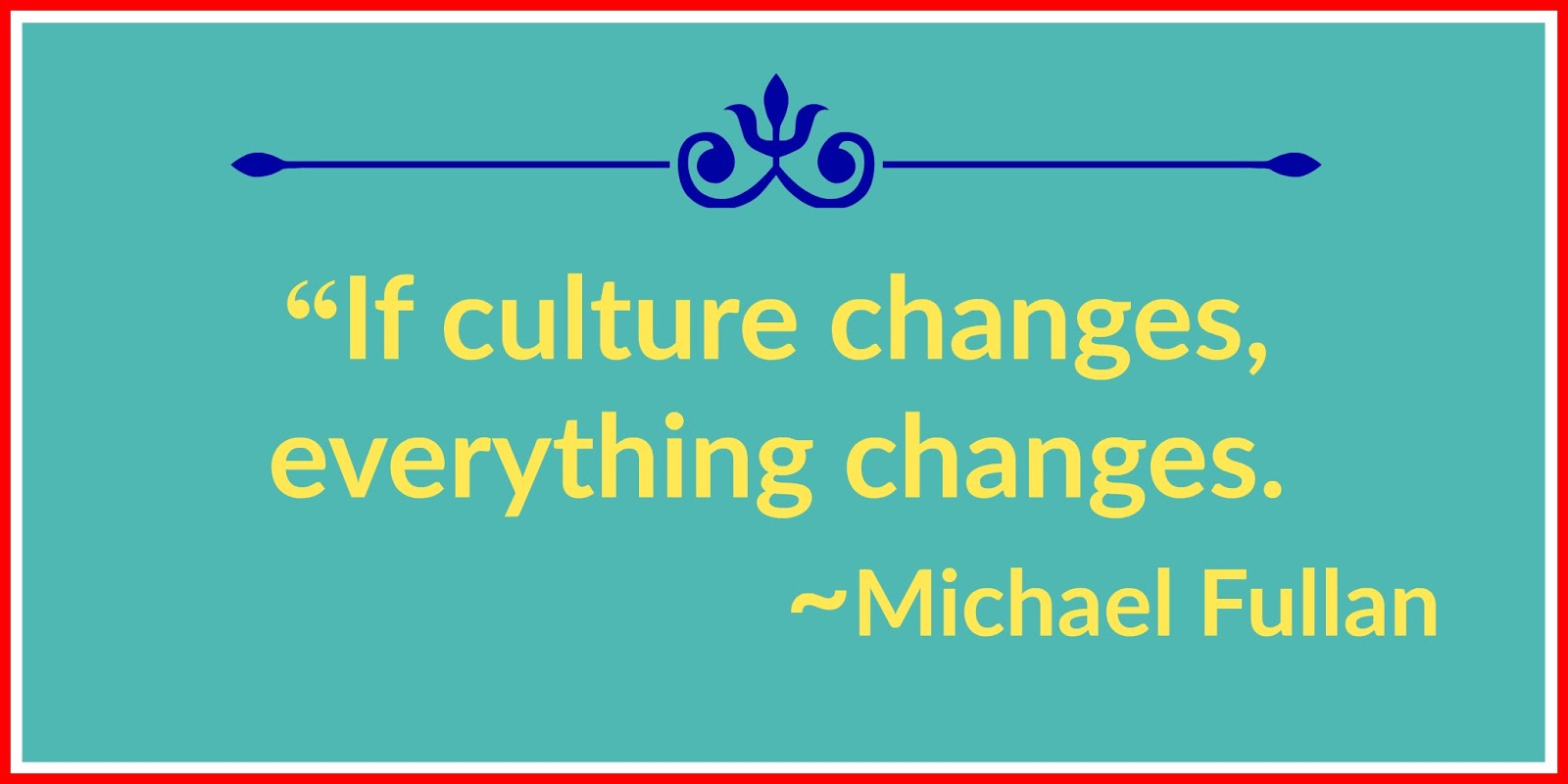I was with some experienced principals recently and we were talking about professional learning that actually shifts practice. I shared examples of action research, looking at student work, peer observations and coaching that I have experienced in my own professional career and have seen time and time again the impact these experiences have on both teacher development, collective efficacy, and student outcomes. In response to this, one principal’s comments are hard to get out of my head. She acknowledged that "type of professional learning" is fine for some but questioned what to do with the teachers who are just there because they need a job and they won’t engage in that type of work. She went on to talk about principals that don’t have the instructional expertise and therefore can’t lead. I have heard this type of response before. It usually is some version of the blame game rhetoric:
That works for that school because they have good teachers or she is a good principal.
Our teachers aren’t that creative.
But these teachers and principals aren’t like them, they need to be told what to do.
Theory X & Theory Y
I have seen motivated individuals who had the kind of “Drive” that Dan Pink talks about to improve outcomes for the learners they serve because they felt a sense of purpose, they were empowered to solve challenges and try new things and felt ownership over their work. I have seen the same individuals deflated and simply go through the motions when they lack agency and feel powerless in a system.
Organizational culture often dictates how people are treated and what we expect of them. These beliefs about people and their inherent motivation drive how we design systems and how we interact with each other. To highlight two contrasting orientations, Douglas McGregor describes these two approaches as Theory X and Theory Y in his book, The Human Side of Enterprise
Theory X organizations are driven by the belief that people need to motivated with “carrot and stick” systems.
Theory X assumes that people:
- Dislike their work.
- Avoid responsibility and need constant direction.
- Need to be controlled and supervised.
- Lack ambition and incentives and need to be enticed by rewards to achieve goals.
Consider how Theory X might look in schools: A principal is expected to comply with district mandates and in turn, she expects the same from her teachers, it will most likely be how the teachers treat their students. Students may comply but often lack engagement, and certainly are not empowered. Students lack opportunities to learn in ways that build on their strength and interests and become more disengaged. Our schools fail to develop the skills and mindsets that are needed today and are school are labeled as failing so we create new programs to fix the problem and create new mandates for principals and teachers to comply and then… the cycle continues.
Theory Y organizations operate with the belief that people take pride in their work and are motivated when they are able to take ownership of their work. These organizations provide systems for people to take greater responsibility and opportunities to grow rather than be controlled.
Theory Y assumes that people are:
- Self-motivated to complete their tasks.
- Enjoy being involved in decision-making and taking ownership of their work
- Take responsibility for work and see it as fulfilling and challenging.
- Solve problems creatively and imaginatively.
Consider how Theory Y might look in schools: A district sets a clear vision and allows principals autonomy to work with the community to make the best decisions for their school to achieve the desired vision, similarly she empowers teachers to make decisions in their classrooms and teams based on what their students need. Everyone works together to learn and improve and students are part of the decision making process with teachers and administration. All learners have opportunities to build on their strengths and interests and are eager to find and solve problems. In classrooms, teachers develop the skills and mindsets that are needed today and in schools, the staff collectively works to improve the trajectory of all learners and we continue to empower educators to make informed decisions to create the best learning experiences for all learners … the cycle continues.
Just as Theory X and Theory Y are completely different ways of operating and treating those we serve and neither of these scenarios presented above is as straightforward as they seem. There are situations that and there are likely examples and reasons for both leadership styles but you can’t expect to develop creative and innovative thinkers in a system that micromanages every move. Think about your vision and what you truly want for students when they leave your classroom or your school. Then think about the dominant beliefs that govern the procedures and policies in your districts, schools, classrooms.

Unlock Agency
If you treat people like they are incapable and if you believe that they need to be told what to do, they will likely live up to your expectations. But what if, as Todd Whitaker says, you treat every teacher as if they were your best teacher? What if you treated every administrator as if they were your best? Our best educators want to improve, want feedback and want to make an impact. For those who may have lost their way or are lacking motivation or are frustrated by their circumstances, leaders at all levels are instrumental in designing the culture and unlocking agency. We have to have high expectations for our teachers and administrators and believe that they too want to be the best and can learn to improve. We expect our students to learn and improve and we should expect nothing less from the educators who are to be leading the way.


0 Comments